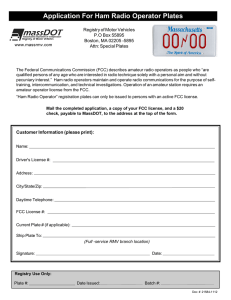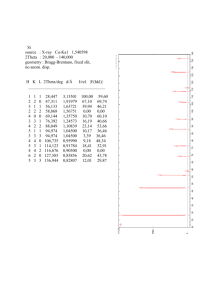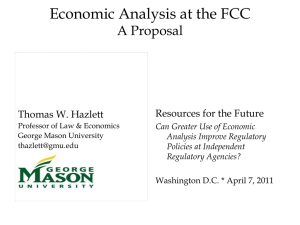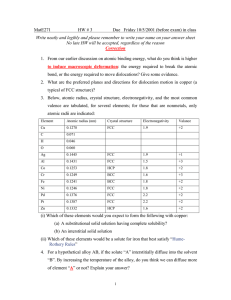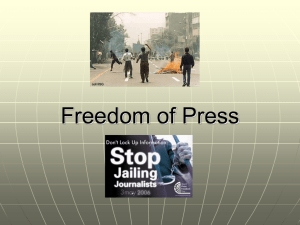System Licensing Guidance for FPV Flight
advertisement
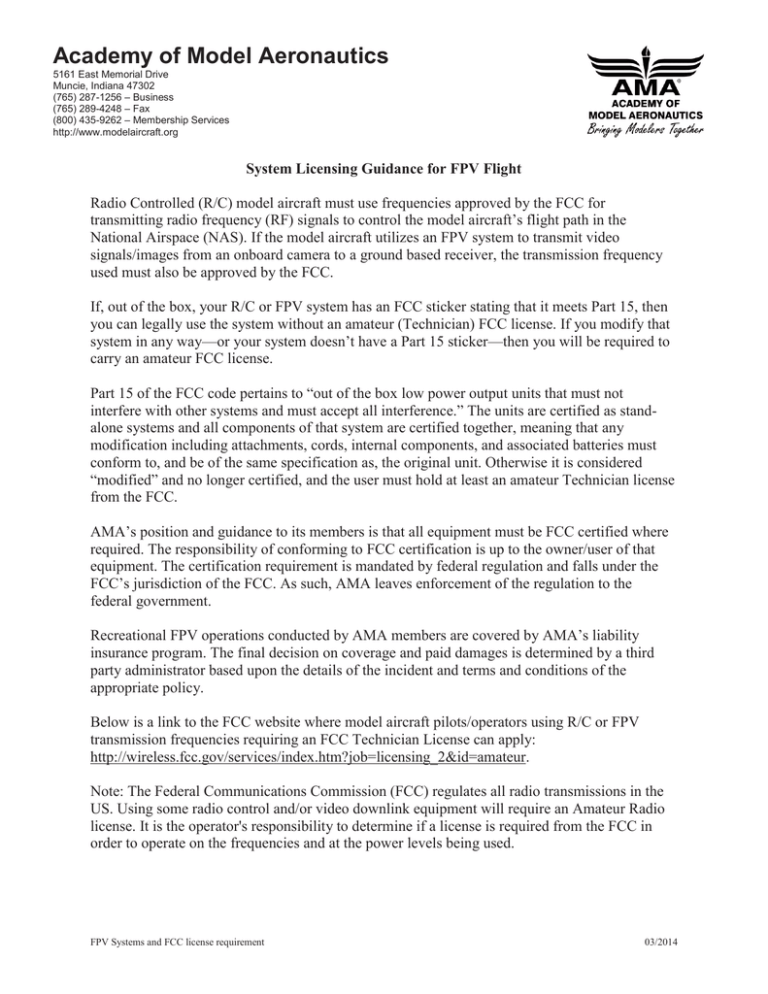
Academy of Model Aeronautics 5161 East Memorial Drive Muncie, Indiana 47302 (765) 287-1256 – Business (765) 289-4248 – Fax (800) 435-9262 – Membership Services http://www.modelaircraft.org System Licensing Guidance for FPV Flight Radio Controlled (R/C) model aircraft must use frequencies approved by the FCC for transmitting radio frequency (RF) signals to control the model aircraft’s flight path in the National Airspace (NAS). If the model aircraft utilizes an FPV system to transmit video signals/images from an onboard camera to a ground based receiver, the transmission frequency used must also be approved by the FCC. If, out of the box, your R/C or FPV system has an FCC sticker stating that it meets Part 15, then you can legally use the system without an amateur (Technician) FCC license. If you modify that system in any way—or your system doesn’t have a Part 15 sticker—then you will be required to carry an amateur FCC license. Part 15 of the FCC code pertains to “out of the box low power output units that must not interfere with other systems and must accept all interference.” The units are certified as standalone systems and all components of that system are certified together, meaning that any modification including attachments, cords, internal components, and associated batteries must conform to, and be of the same specification as, the original unit. Otherwise it is considered “modified” and no longer certified, and the user must hold at least an amateur Technician license from the FCC. AMA’s position and guidance to its members is that all equipment must be FCC certified where required. The responsibility of conforming to FCC certification is up to the owner/user of that equipment. The certification requirement is mandated by federal regulation and falls under the FCC’s jurisdiction of the FCC. As such, AMA leaves enforcement of the regulation to the federal government. Recreational FPV operations conducted by AMA members are covered by AMA’s liability insurance program. The final decision on coverage and paid damages is determined by a third party administrator based upon the details of the incident and terms and conditions of the appropriate policy. Below is a link to the FCC website where model aircraft pilots/operators using R/C or FPV transmission frequencies requiring an FCC Technician License can apply: http://wireless.fcc.gov/services/index.htm?job=licensing_2&id=amateur. Note: The Federal Communications Commission (FCC) regulates all radio transmissions in the US. Using some radio control and/or video downlink equipment will require an Amateur Radio license. It is the operator's responsibility to determine if a license is required from the FCC in order to operate on the frequencies and at the power levels being used. FPV Systems and FCC license requirement 03/2014
